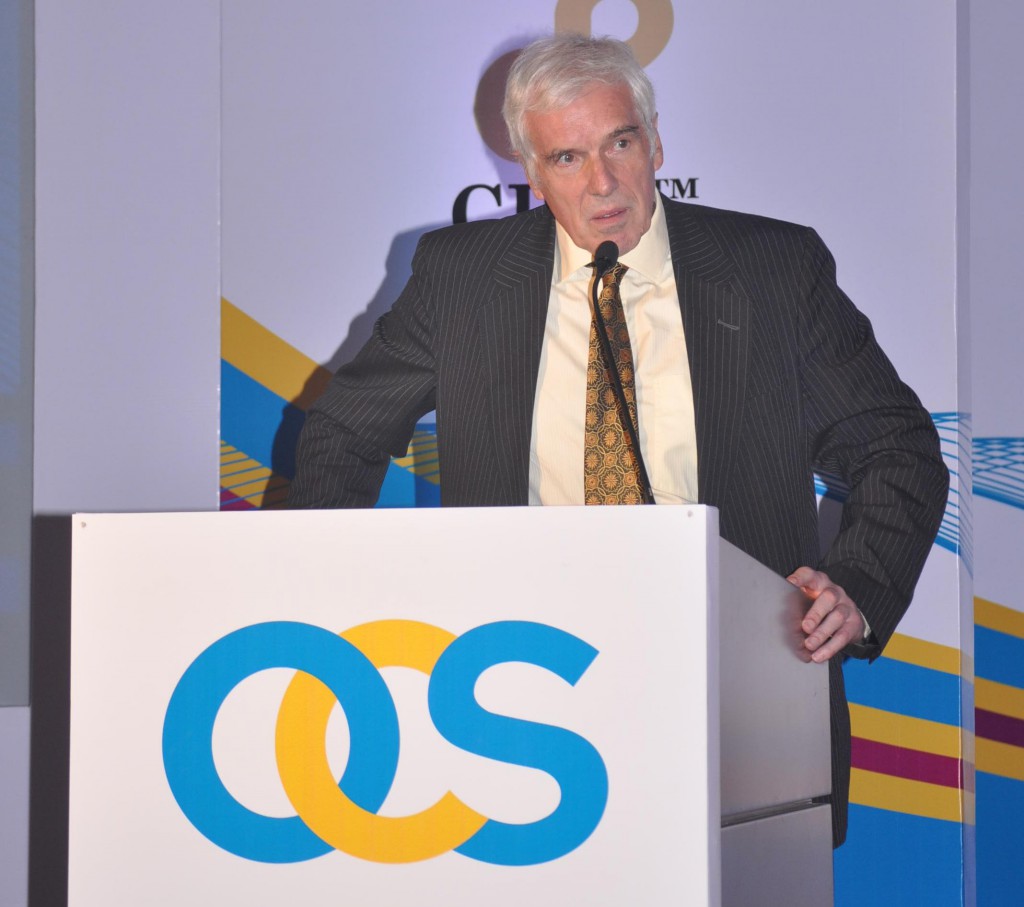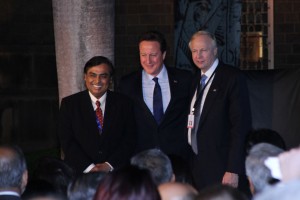18th July 2013
Farewell to Mumbai (Part 2): Doing better than we think

Some UK visitors to India, and British newspaper headlines, seem to consider that business here should be ours by “divine right”, as if it is Britain’s for the taking.
We have, the argument goes, a special relationship with India – language, law, cricket, immigrants – which means that we must have an advantage on the commercial playing field. This line of thinking seemed especially prevalent after the French beat the UK –Euro-Fighter bid for jets for the Indian Air Force.
After nearly four years of living and breathing the commercial environment of Mumbai, this seems the wrong way of looking at the challenges of doing business here.
One of the first things that struck me on arrival was the entrepreneurial nature of the country, from the rich Gujarati planning his next acquisition to the shoe-mender on the pavement. The Indian entrepreneur, diplomat or salesmen will, not unreasonably, do the business, sign the treaty or complete the deal which suits him best.
Nothing is more complicated than that: ties of the past or the region are not part of the equation.

The reverse of that coin is that Indians have a mature, no-hangs-up relationship with Britain.
Part of the Commonwealth but with a political system which has appointed presidents who have been variously Muslim, Hindu, space scientists or ex-finance ministers, the Indians approach the UK like any other country, with no chips on their shoulders or special pleading.
Of course many Indians like the UK – and you only have to look at the line of P G Wodehouse novels at the airport, or even Enid Blyton stories in school satchels to get a flavour of the links! – and the middle class delight in holidays to London or to see relatives in Leicester. But with Tata owning JaguarLandRover, and Essar one of our largest refineries, the relationship is entirely one of equals.
UK business can and does make a major mark here, more than some appreciate. Five examples that I have been involved with over the last 42 months illustrate the point:
- In Pune I have worked with two UK companies who have set up manufacturing subsidiaries, in the automotive and petrochemicals business. It would be wrong to claim that the going has always been plain sailing, and one has struggled with the theft of Intellectual Property, but both SMEs are here for the long haul;
- One of the UK’s largest privately owned companies, OCS, launched its India business in Mumbai last month. When I met its CEO three years ago it had 2000 employees in the facilities management business: it now has 22,000 and climbing, with its chairman joining David Cameron’s trade delegation here in February;
- Lastly, at the big end of the scale, BP and Diageo have become two of the largest players in their fields. I discussed some of Diageo’s earlier Indian travails at their West End HQ before I even got here: today they run one of the largest drinks’ businesses in the country.
Similarly, when I saw BP’s management team in London in 2010, they were a long way from competing the jv they sought, and the Gulf of Mexico disaster put plans on hold. Now they are the largest overseas investor in India. Of course there is more we can do, and the Germans for example appear to be leading the way in machine tools and automotive supplies, and the French in civil nuclear work.
But we shouldn’t be either too modest, or complacent, about our achievements.

So I leave Mumbai confident that it is a city in which, as the undisputed commercial capital of India, the UK is making a mark – and I haven’t even mentioned the huge successes in UK insurance and banking.
It is not an environment for the faint-hearted or claustrophobic, but it will continue to have an importance for the UK which only companies who have little international ambition can afford to miss.
My wife and I will miss it all despite, or because of, the contrast with our next assignment: the Turks and Caicos Islands in the Caribbean, whose capital on Grand Turk probably has fewer inhabitants than the street we have lived in Mumbai. I’m sure we will even miss the incessant traffic horns!
Thank you for the post and news.
Since a while now Mumbai is good place for business.
Respected Sir,
I really appreciate the kind of in depth study you did of Mumbai. I have been reading nearly all your blogs regularly and am very impressed by your observations.
You are right- UK & India share a special relationship and so the business should also reap its benefit. It is also a point to highlight that PM David Cameron visited India recently with one of his highest delegations.
Last but not the least, its been a good journey of yours to India. I hope you do prosper and offer my heartiest wishes for all your future endeavours!
A balanced and insightful view of India, Peter, expressed with generous words.
Based on comments from many locals, no doubt Bombay will miss a very down-to-earth and popular British Deputy High Commissioner.
Wishing you every success in the Turks and Caicos Islands.
As I have had previous occasion to say, Peter’s down-to-earth and experienced insights and assistance will be sorely missed by the British business community n India. This pithy commentary encapsulates those qualities and should be part of UKTI’s briefing for all their delegations!